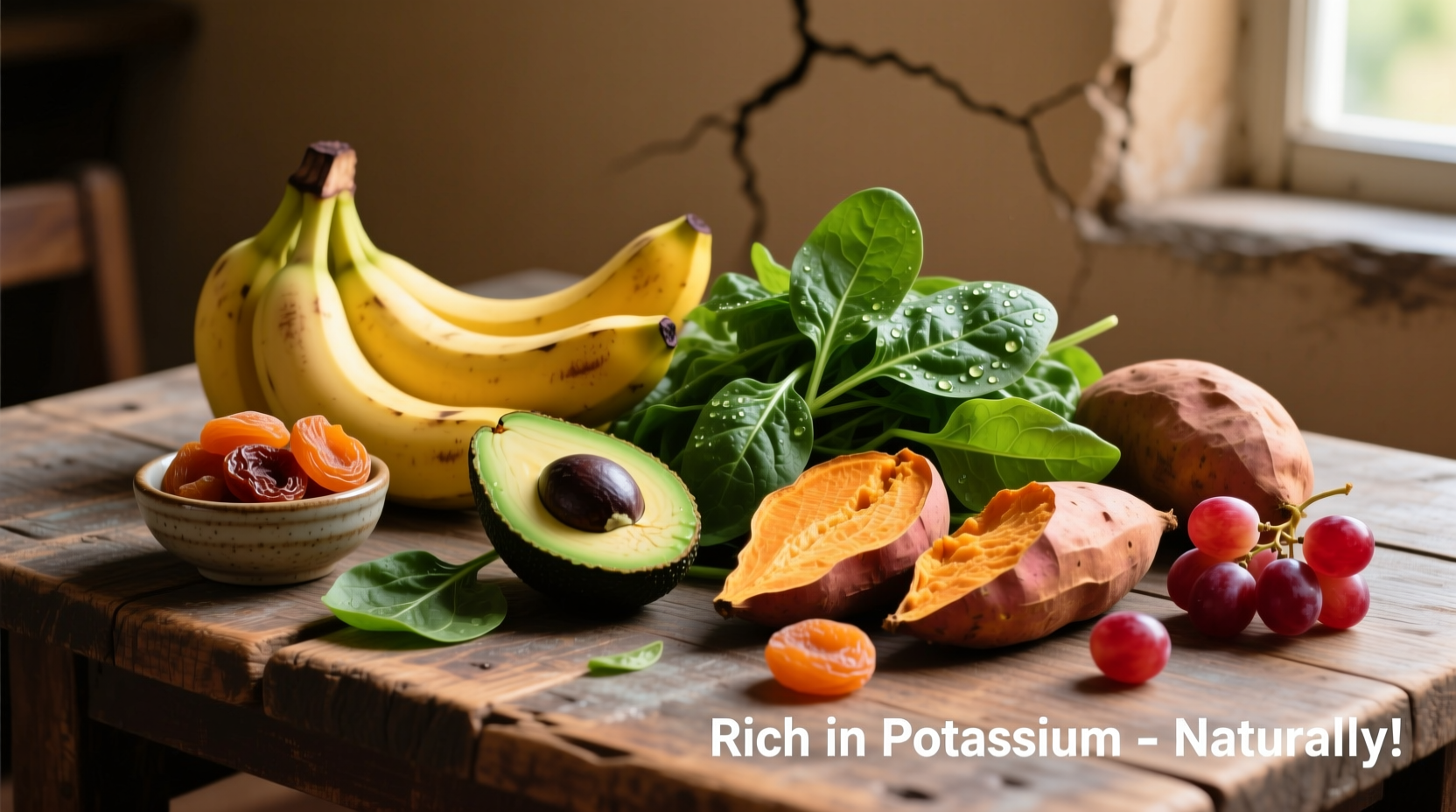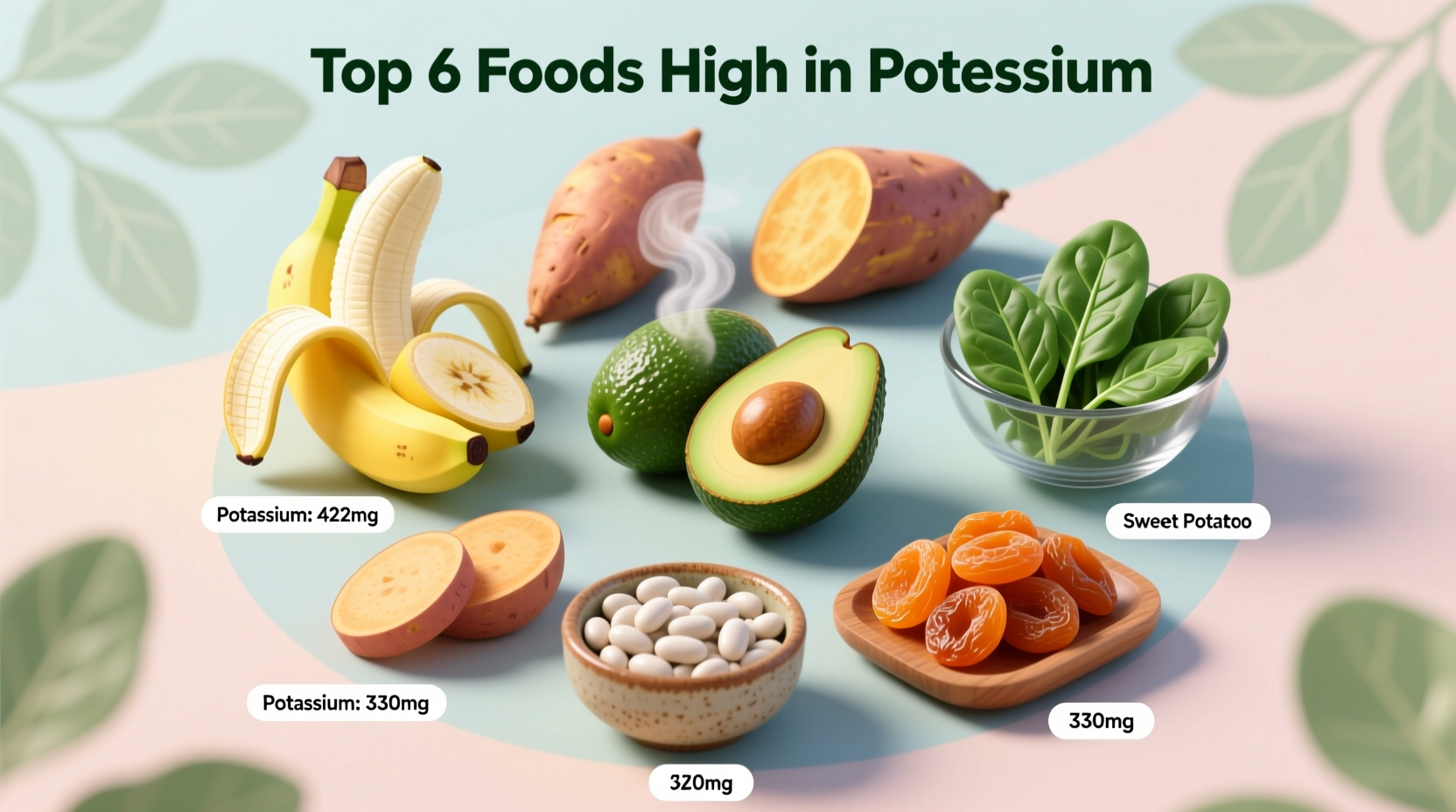The top potassium-rich foods include white beans (1,004mg per cup), sweet potatoes (542mg per medium potato), avocados (690mg per whole fruit), spinach (839mg per cooked cup), and salmon (534mg per 3-ounce serving). These natural sources provide significantly more potassium than bananas (422mg per medium fruit), making them excellent choices for meeting your daily potassium needs of 2,600-3,400mg for women and 3,400mg for men.
When you're searching for what foods have the most potassium, you need accurate, science-backed information you can trust. Potassium plays a critical role in maintaining healthy blood pressure, supporting nerve function, and enabling proper muscle contractions. Yet most adults fall short of the recommended daily intake established by the National Institutes of Health.
Why Potassium Matters More Than You Think
Potassium works as an essential electrolyte that helps balance fluids in your body, counteracts sodium's effects, and supports cardiovascular health. The National Academies of Sciences, Engineering, and Medicine recommends 2,600mg daily for women and 3,400mg for men. Despite these guidelines, the Centers for Disease Control and Prevention reports that fewer than 3% of Americans meet their daily potassium requirements.
Top Potassium Foods Ranked by Nutrient Density
Based on USDA FoodData Central measurements, these foods deliver the highest potassium content per standard serving. We've organized them by food category for easy reference when planning meals.
| Food | Serving Size | Potassium (mg) | % Daily Value |
|---|---|---|---|
| White beans (cannellini) | 1 cup, cooked | 1,004 | 22% |
| Spinach (cooked) | 1 cup | 839 | 18% |
| Avocado | 1 whole | 690 | 15% |
| Sweet potato | 1 medium | 542 | 12% |
| Salmon | 3 ounces | 534 | 11% |
| White potato | 1 medium | 515 | 11% |
| Beet greens | 1 cup, cooked | 444 | 10% |
| Banana | 1 medium | 422 | 9% |
Notice that several common foods contain significantly more potassium than bananas, which many people mistakenly believe are the top source. This USDA FoodData Central reference provides the most current nutrient measurements for accurate dietary planning.
Practical Ways to Boost Your Potassium Intake
Incorporating potassium-rich foods doesn't require drastic dietary changes. Try these simple strategies that fit naturally into your daily routine:
- Start your day with a spinach and avocado smoothie instead of banana-based options
- Replace refined grains with white bean salads for lunch
- Choose sweet potatoes over regular potatoes for dinner sides
- Snack on edamame (soybeans) which provide 485mg per cup
- Add beet greens to stir-fries or sauté them as a side dish
These practical approaches to high potassium foods list implementation help you gradually increase your intake without overwhelming dietary changes. Remember that cooking methods affect potassium content—boiling vegetables can leach potassium into water, while steaming or roasting preserves more nutrients.
Special Considerations for Different Needs
While most people benefit from increasing potassium intake, certain health conditions require medical guidance. The National Kidney Foundation notes that individuals with kidney disease may need to limit potassium, as impaired kidneys cannot effectively remove excess potassium from the blood.
Athletes and active individuals often have higher potassium needs due to sweat loss during exercise. Research published in the Journal of the International Society of Sports Nutrition indicates that endurance athletes may lose 200-800mg of potassium per hour of intense exercise, making potassium-rich recovery foods particularly important.

Meeting Daily Potassium Requirements Through Diet
Creating balanced meals with potassium-rich ingredients ensures you meet daily requirements without supplementation. Here's a sample day:
- Breakfast: Omelet with spinach and avocado (600mg potassium)
- Lunch: White bean soup with beet greens (900mg potassium)
- Snack: Edamame with sea salt (485mg potassium)
- Dinner: Baked salmon with roasted sweet potatoes (1,000mg potassium)
This sample meal plan provides approximately 3,000mg of potassium—meeting the daily requirement through whole foods. When planning your potassium rich foods for heart health, focus on variety to ensure you're getting other essential nutrients alongside potassium.
Common Misconceptions About Potassium Sources
Many people operate under incorrect assumptions about potassium-rich foods. The most common myth is that bananas are the top source, when in reality they rank relatively low compared to vegetables, legumes, and fish. Another misconception is that processed foods provide adequate potassium—most processing removes significant potassium content.
When evaluating best natural sources of potassium, prioritize whole, minimally processed foods. The Dietary Guidelines for Americans consistently shows that diets rich in fruits, vegetables, legumes, and fish provide superior nutrient density compared to processed alternatives.
Frequently Asked Questions
Here are answers to common questions about potassium-rich foods based on current nutritional science.











 浙公网安备
33010002000092号
浙公网安备
33010002000092号 浙B2-20120091-4
浙B2-20120091-4